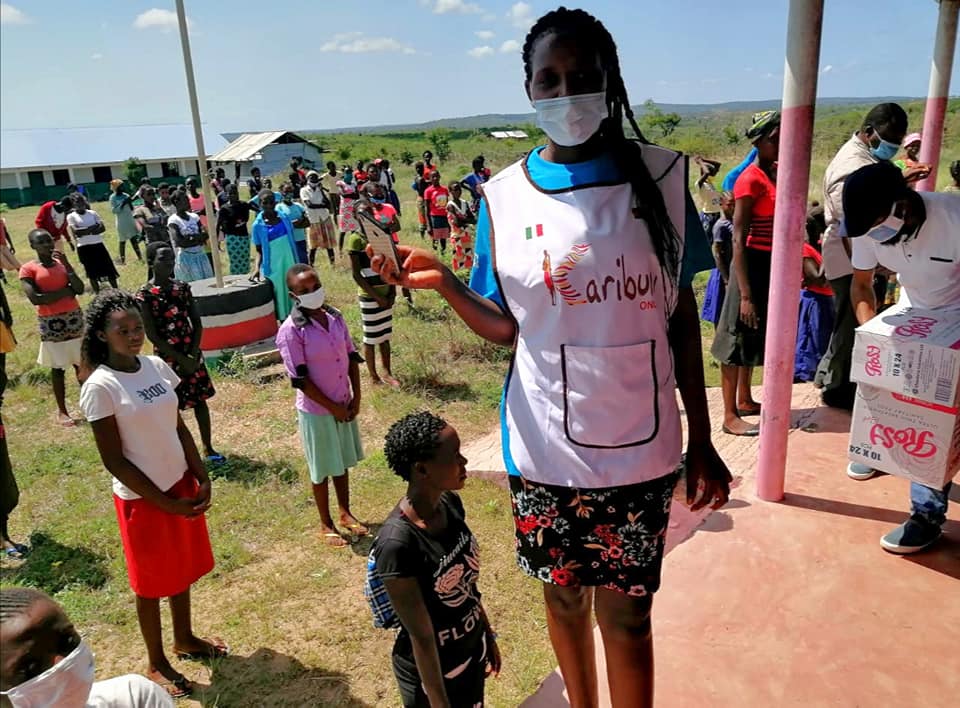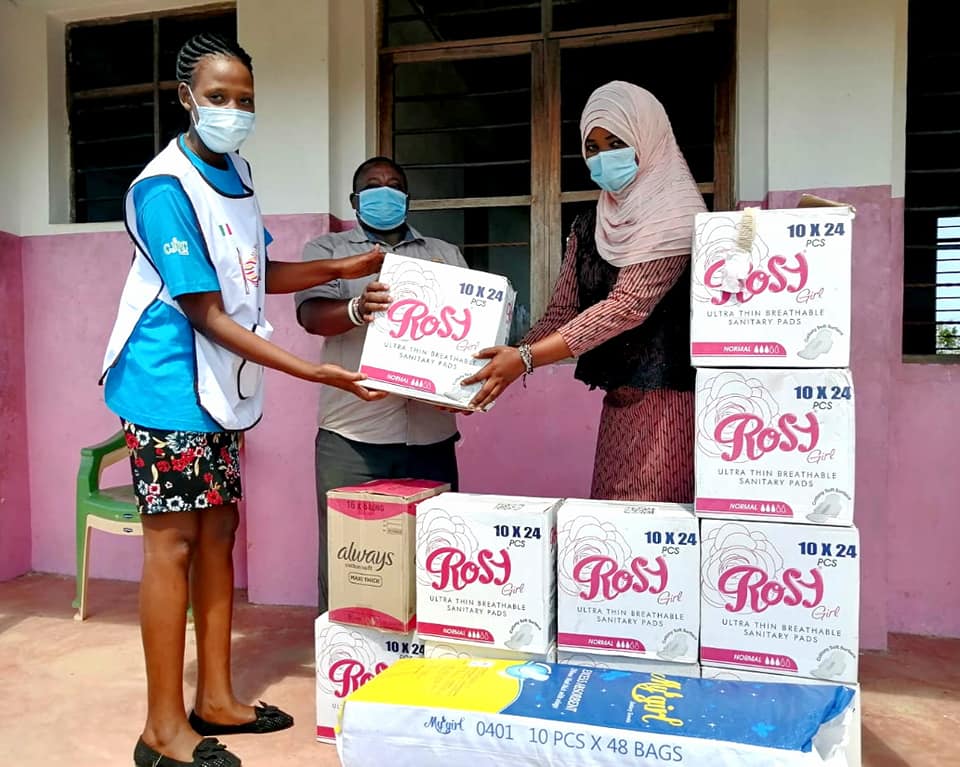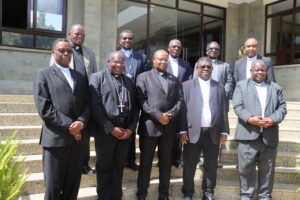KENYA: On International Day of Girl Child Malindi Diocese Launches Monthly Program to Address Teenage Pregnancies

A section of teenage girls during the launch on International Day of the Girl Child
Sr. Jecinter Antoinette Okoth, FSSA
Malindi Diocese in Kenya through the Catholic Justice and Peace Commission (CJPC-Malindi) in partnership with Karibuni Onlus a Non-Governmental Organization (NGO) whose aim is to contribute to the development of small African communities by delivering health, education and community support projects, has launched a program that will benefit teenage girls and prevent them from early pregnancies and other related encounters.
The program that intends to commence with 500 girls identified from the most affected Coastal region of Kenya will apply a model that involves meeting the target beneficiaries every month to address challenges contributing to teenage pregnancies as shall be raised by the teenage girls, and work towards realization of recommendations made.
According to the Coordinator of CJPC-Malindi Mr. Moses Mpuria in a report, “the target beneficiaries will be actively involved in developing Information, Education and Communication (IEC) materials appropriate to their level of understanding.”
Additionally, Mr. Mpuria narrated that the materials gathered will lead to “publication of a handbook on addressing Teenage Pregnancies that shall be used by the targeted girls to educate other vulnerable girls in the community.”
In the report by Mr. Mpuria who is also the Executive Secretary of CJPC-Malindi, Kilifi County is one of the poorest areas of Kenya with Human Development Index of 0.47% compared to the national average of 0.58%.
“This means that the populations have limited opportunities and choices, which predispose young girls to be lured into sexual activity for purposes of accessing basic necessities,” the report reads further.
He explained further that since the month of March when schools were closed in the wake of Covid-19 pandemic teenage pregnancies have been rampant “as highlighted by mainstream media citing data from the most recent Kenya Government Health Information Survey.”
Citing a study on teenage sexual and reproductive health rights that was conducted in Kilifi County some four years ago, Mr. Mpuria disclosed that the findings “posit that teenage pregnancies pose serious health, psycho-social and economic dangers to the girls including thwarting their reproductive health, child birth, schooling and career growth, keeping them in vicious cycles of poverty given that many of them come from needy families, and limiting their capabilities, opportunities and choices.”
During the launch of the program on Sunday October 11, some 100 girls were mobilized by teachers in the area to participate in the event that “involved talks on avoiding teenage pregnancies and valuing education,” and which concluded with distribution of sanitary pads.
In a question and answer session, the teenage girls highlighted challenges that drive them into unhealthy relationship that result in early pregnancies, and also shared their take on what they as teenagers and also the society can do to address the menace.

According to the teenage girls, “Lack of basic needs due to poverty in the family, neglectful parenting, peer pressure, lack of role models, poor attitude towards educating a girl child, and access to pornographic materials” are some of the challenges that drive them into unhealthy relationships and choices resulting in teenage pregnancies, school drop-out, and child marriages.
The teenagers recommended change of attitude on education of girl child, involved parenting and having mentors who can guide them towards responsible living and valuing education.
According to Mpuria, Karibuni Onlus NGO renewed its partnership with the Diocese of Malindi early this year, by supporting COVID-19 response initiative to feed more than 1,000 vulnerable families affected by measures to contain the spread of Coronavirus during the pandemic.
The successful collaborating in the COVID-19 response initiative, has led to a continued cooperation in addressing teenage pregnancies in Kilifi and in a Micro-credit initiative towards strengthening the economic status of vulnerable families.
Mr. Mpuria underscored that “Once the schools reopen, appropriate efforts shall be made to incorporate the project in the school co-curricular activities program.”
He added, “Evaluation of this project shall involve analysis of a data base that is to be created to track school attendance and performance, teenage pregnancies and child marriage on the targeted beneficiaries and comparing the results similarly to the records from the Ministry of Education and other relevant Government entities on girls not supported by the project.”
The Coordinator for CJPC- Malindi hopes that a positive impact of the project on addressing teenage pregnancies will be employed as an advocacy tool to champion for improved interventions in dealing with the menace.


